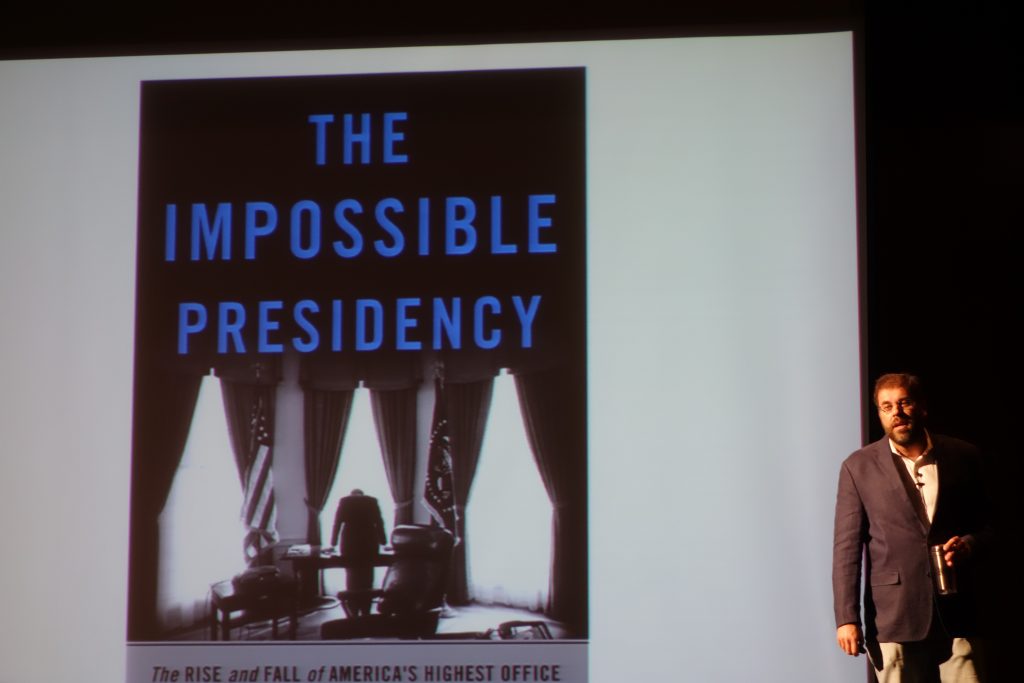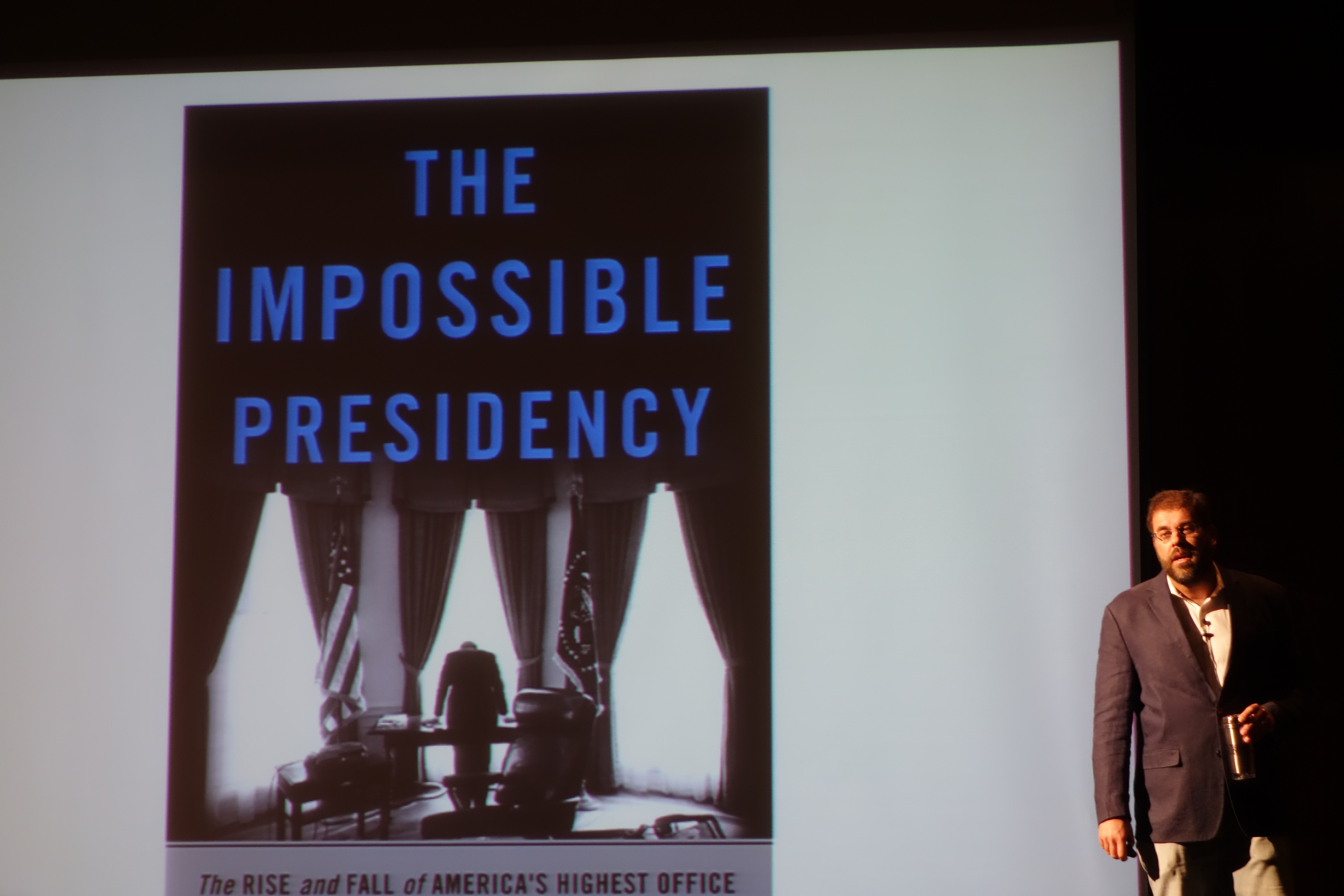
Speaking at the LBJ Library in Austin recently, Suri claims the United States is “an ancient Greek society in a modern world.” He rarely tells strangers these days he is a historian, because “if you say you’re a historian they think you’re an antiquarian.” I have the same reticence about saying I’m an astronomer, because people think astronomers are astrologers.
Pervasive ignorance is at the root of such disconnects with reality. The essence of what antiquarianism is shows this starkly. “Antiquarianism,” explained Suri, “is an effort to find a photo of grandma, and then reimagine touching grandma.”
Historical thinking, on the other hand, “is understanding the choice made in historical times and how those choices affect us today. In the absence of good history, we suffer from the tyranny of absent imagination.”
Suri brings this understanding to bear in the book The Impossible Presidency, which looks at several key presidents and how they radically reshaped the office. At its core, Suri said “the presidency was designed to bring people together.” The first six presidents established this mold, but “Jackson broke the mold,” Suri states in his book. “Jackson brought the godly image of leadership down to earth, emphasizing a direct identification with ordinary people and a channeling of their deepest passions.” If you see parallels with Trump, it should come as no surprise that the current occupant of the presidency most identifies with Andrew Jackson.
Suri explains in the book that “Jackson’s anti-elitism greatly increased the power of the American executive.” Lincoln used that increased power to declare the Union was inseparable, but its full expression did not happen until the presidency of Franklin Roosevelt, whom Suri regards as “the greatest president ever.”
In his talk in Austin, Suri told an audience at the One Day University that FDR “saw the presidency as a unifier and he saw himself as saving capitalism, which was Lincoln’s legacy. The most important quality of leadership we lack today is empathy: FDR saw himself as a national healer.”
The critical times of the Depression and World War II changed the presidency. “Roosevelt made the president the manager, guarantor, and trust-builder for money.” Suri writes in the book that FDR “created unrealistic expectations in many areas, but perhaps nowhere more so than in the economy.”
Of course the other great area of change was war. “Roosevelt’s exceptional use of presidential war-making powers became normal – even insufficient – for the next generation of national executives.” Suri writes that Reagan “encouraged higher expectations for executive performance, not less.” As a result, he created an even “more powerful presidency.”
The confluence of these and other factors mean “presidents have become constant crisis managers: if you are managing crises you are not leading.”
The office has thus evolved into an impossible presidency. But there is at least a glimmer of hope. Suri told his audience in Austin that “the space we are in now is reform. The horrors of the moment open up a space for young people to change things.”
About the event:
One Day University brings professors from more than 70 top-tier schools to offer lectures to the public. These happen in 61 cities across the U.S., Canada and Iceland. The next Austin appearance will be Oct. 20, 2018, entitled A Day of Art. For more information, consult their website: onedayu.com
About the book:
The Impossible Presidency (343 pgs) is $32 from Basic Books. It was published in 2017 and is a well-reasoned account of how the powers of the presidency have morphed since their foundation by George Washington.
